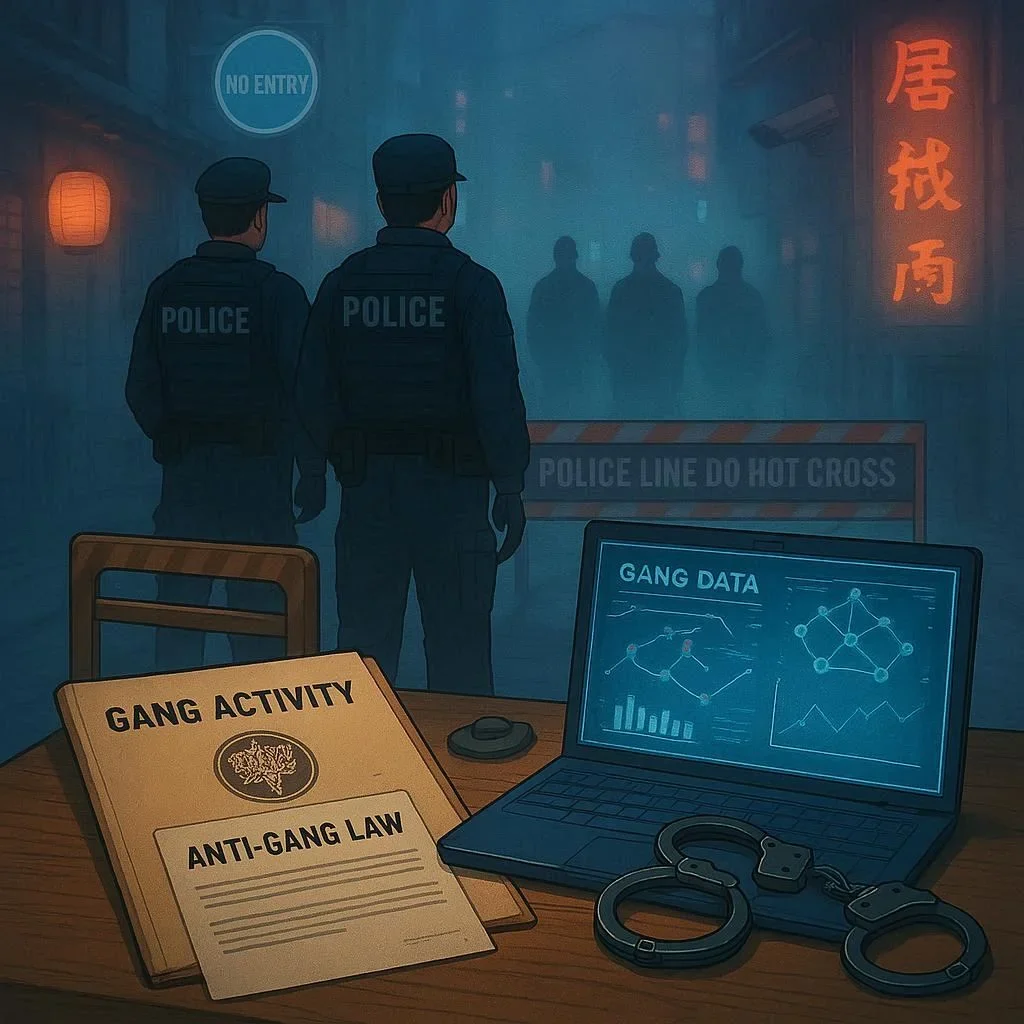517 views Law Enforcement Tactics: New Anti-gang Laws and Their Effects on Yakuza Activity
The world of organized crime has always been a complex and elusive realm, with groups like the Yakuza operating in the shadows for decades. However, recent changes in law enforcement tactics and the introduction of new anti-gang laws have thrown a wrench into the works of these criminal organizations. This blog post delves into the specifics of these new laws, the tactics being employed by law enforcement, and the tangible effects these changes have had on Yakuza activity.
The Yakuza: A Brief Overview
Before diving into the specifics of the new laws and their effects, it’s essential to understand who the Yakuza are and how they operate. The Yakuza, often referred to as Japan’s mafia, is one of the largest and most organized crime syndicates in the world. With roots dating back to the Edo period, the Yakuza has evolved into a sophisticated criminal organization involved in various activities ranging from extortion and gambling to drug trafficking and real estate fraud.
Traditionally, the Yakuza has operated with a certain level of impunity, thanks to a combination of fear, respect, and strategic alliances. However, as law enforcement tactics have evolved and new anti-gang laws have been implemented, the Yakuza’s grip on Japan’s criminal underworld has begun to loosen.
The Introduction of New Anti-gang Laws
In recent years, the Japanese government has introduced a series of new anti-gang laws aimed at curbing the influence and activities of organized crime groups like the Yakuza. These laws are part of a broader effort to modernize Japan’s legal framework and bring it more in line with international standards for combating organized crime.
One of the most significant pieces of legislation is the “Anti-Yakuza Law,” which was enacted in 1992. This law specifically targets the Yakuza and other organized crime groups, making it illegal to belong to or associate with such organizations. The law also imposes harsh penalties for crimes committed by Yakuza members, including longer prison sentences and seizures of assets.
Another key piece of legislation is the “Organized Crime Countermeasures Law,” which was introduced in 2011. This law broadens the definition of organized crime and provides law enforcement with more tools to combat these groups. It also introduces stricter penalties for crimes related to organized crime, such as money laundering and racketeering.
Law Enforcement Tactics: A New Approach
The introduction of these new laws has been accompanied by a shift in law enforcement tactics. Gone are the days when the Yakuza could operate with relative impunity; today, law enforcement agencies are employing a more aggressive and proactive approach to combating organized crime.
One of the key tactics being used by law enforcement is the targeting of Yakuza leadership. By going after the top echelons of the organization, law enforcement aims to disrupt the command structure and create chaos within the ranks. This strategy has been particularly effective, as the Yakuza’s hierarchical structure is heavily reliant on its leaders to maintain order and control.
Another tactic being employed is the use of financial investigations and asset seizures. The Yakuza, like most organized crime groups, is driven by profit. By targeting their financial networks and seizing their assets, law enforcement is able to disrupt their operations and limit their ability to fund illegal activities.
Law enforcement is also leveraging technological advancements to combat the Yakuza. Surveillance, wiretapping, and the use of informants are all being used to gather intelligence and build cases against Yakuza members. Additionally, the internet and social media are being monitored for any signs of Yakuza activity, making it harder for them to operate undetected.
The Effects on Yakuza Activity
The combined impact of these new laws and law enforcement tactics has been significant. Yakuza activity has decreased in many parts of Japan, and the organization’s influence is waning. However, it’s important to note that the Yakuza is a resilient and adaptable organization, and it’s unlikely to disappear completely.
One of the most noticeable effects of the new laws is the decline in overt Yakuza presence. In the past, Yakuza members were often seen openly operating in certain areas, and their presence was even somewhat tolerated by local communities. Today, however, Yakuza members are forced to operate more covertly, and their public presence has all but disappeared.
Another effect has been the disruption of Yakuza operations. The targeting of leadership and the seizure of assets have made it harder for the Yakuza to coordinate and carry out large-scale criminal activities. This has led to a decrease in organized crime-related offenses, such as extortion, drug trafficking, and loan sharking.
The new laws have also had a psychological impact on Yakuza members. The increased pressure from law enforcement and the harsher penalties have led to a rise in defections and cooperation with authorities. Some Yakuza members have even turned state’s evidence, providing valuable information about the inner workings of the organization.
The Broader Impact on Society
The effects of the new anti-gang laws and law enforcement tactics extend beyond just the Yakuza and the world of organized crime. These changes have had a broader impact on Japanese society, both positive and negative.
On the positive side, the clampdown on organized crime has led to a safer and more secure environment for the general public. Communities that were once terrorized by the Yakuza are now beginning to feel a sense of relief, and there is a growing perception that the government is taking a tougher stance on crime.
The new laws have also had a positive impact on the economy. By targeting the financial networks of organized crime, the government has been able to disrupt the flow of illegal funds and prevent them from being used to fuel further criminal activity. This has had a stabilizing effect on the economy and has made it harder for organized crime groups to exploit legitimate businesses.
However, there are also some negative consequences to consider. The increased focus on organized crime has led to concerns about civil liberties and the potential for abuse of power by law enforcement. Some critics argue that the new laws give too much power to the authorities and could be used to target innocent individuals or groups.
Additionally, the decline of the Yakuza’s influence has created a vacuum in the criminal underworld, which is being filled by other organized crime groups. While the Yakuza’s activities have decreased, other criminal organizations, both domestic and international, are beginning to take advantage of the situation and expand their operations in Japan.
Conclusion
The introduction of new anti-gang laws and the shift in law enforcement tactics have had a profound impact on the Yakuza and the world of organized crime in Japan. While the Yakuza is unlikely to disappear completely, its influence and activity have been significantly curtailed. The effects of these changes extend beyond the criminal underworld, with both positive and negative consequences for Japanese society.
As law enforcement continues to adapt and evolve, it will be important to balance the need to combat organized crime with the need to protect civil liberties and ensure that the rights of all citizens are upheld. The battle against organized crime is far from over, but the new laws and tactics represent a significant step forward in the ongoing effort to create a safer and more just society.







